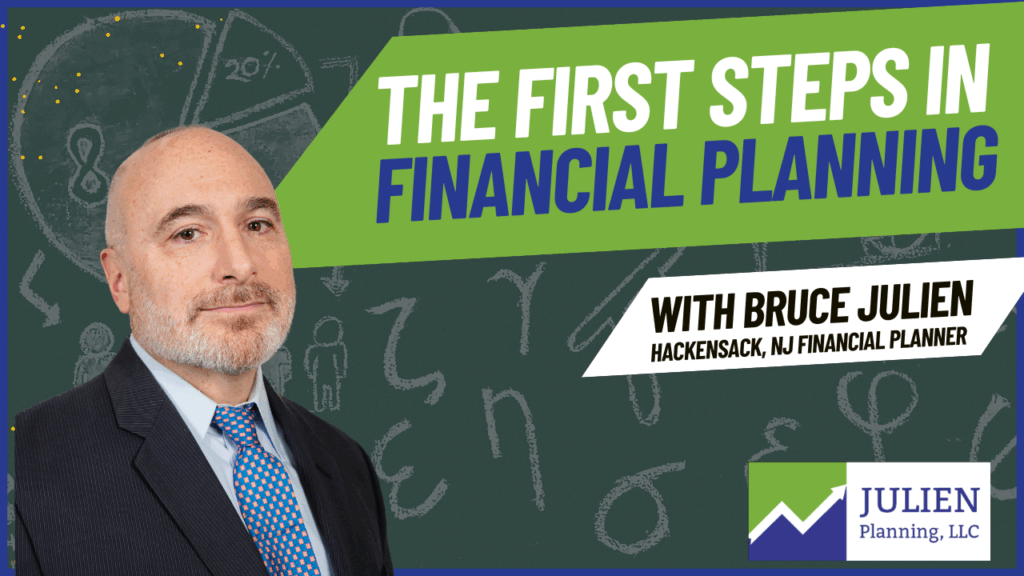What Is Financial Planning?

What is Financial Planning?
Financial planning is the process of taking an inventory of all your financial resources—your income, assets, liabilities, and expenses—and aligning them with your personal goals. It’s about understanding how your current financial situation can help you achieve what’s most important in life, whether that’s buying a home, sending your kids to college, or retiring comfortably. But, financial planning isn’t just about numbers. It’s about creating a strategy that works for you, addressing both the tangible and intangible aspects of your financial journey. It’s about securing your future while managing the present. I’ve got 35 years experience, but just in case you don’t believe me, here’s what Investopedia says about financial planning.
Common Misconceptions About Financial Planning
Myth: Financial Planning is Only About Making Money
Many people mistakenly believe that financial planning is only about accumulating wealth. However, while building wealth is a key aspect, financial planning is much more than just increasing your net worth. It’s about aligning your financial decisions with your personal and family goals. Whether it’s saving for a vacation, retirement, or an emergency fund, financial planning provides a roadmap for how you use your money to fulfill these aspirations.
Myth: It’s Just About Tracking Assets in a Spreadsheet
Another common myth is that financial planning is simply a matter of tracking assets, liabilities, income, and expenses on a spreadsheet. While keeping track of your finances is important, financial planning is much more strategic. It’s about analyzing how your current financial situation can be optimized to achieve your goals, and it involves critical decision-making about investments, taxes, insurance, and more.
Reality: Financial Planning is a Holistic Strategy Tailored to Individual Needs
In reality, financial planning is a comprehensive approach that integrates all aspects of your financial life—now and in the future. It involves setting financial goals, making informed decisions about investing, planning for taxes, and preparing for life’s uncertainties, such as health issues, emergencies, and insurance needs. The goal is to provide a clear financial path that aligns with your values and objectives.
The Core Components of Financial Planning
Assessing Financial Assets and Liabilities
The first step in any financial plan is to take stock of where you stand. This means listing out all your assets (e.g., savings, property, retirement accounts) and liabilities (e.g., debt, mortgages, loans). By understanding where you are financially, you can start to create a roadmap to where you want to go.
Setting Financial Goals
Once you know your current financial situation, you need to define your goals. Are you saving for a down payment on a house? Do you want to retire early? Do you want to send your kids to college? Understanding the difference between short-term and long-term goals allows you to create a strategy to reach them while managing your cash flow.
Budgeting and Cash Flow Management
Proper budgeting is essential to ensure that your income is used wisely and aligned with your goals. A detailed budget helps you track your spending and ensures that you’re not overspending on unnecessary expenses, which can derail your financial progress.
Investment Strategy & Risk Management
An effective financial plan includes an investment strategy that is in line with your risk tolerance and long-term objectives. Diversifying your investments and managing risk are critical components of building wealth and achieving financial goals.
Tax Planning and Optimization
Effective tax planning can help you minimize tax liabilities and keep more of your hard-earned money. This involves taking advantage of tax-deferred accounts, understanding capital gains taxes, and planning for tax-efficient withdrawals in retirement.
Insurance and Risk Protection
Financial planning also involves protecting yourself and your family from unexpected life events. Insurance policies, such as health, life, and disability insurance, act as safety nets to provide financial support during emergencies.
Behavioral Aspects of Financial Planning
Emotional Biases Affecting Financial Decisions
Behavioral biases can have a major impact on how we manage our finances. Emotions such as fear and greed can lead to irrational financial decisions, such as selling investments in a panic during market downturns or chasing after high-risk, high-return opportunities. Financial planning helps you avoid these emotional traps by creating a clear, structured strategy to follow.
The Role of Financial Advisors in Keeping Clients on Track
A financial advisor plays a critical role in helping clients stay focused on their long-term financial goals. They act as a guide, providing insight and advice to help clients avoid emotional decision-making and stay on track. Advisors help with everything from retirement planning to estate planning, ensuring that clients make informed decisions that align with their broader goals.
Julien Financial Planning’s Approach
Customized Financial Strategies
At Julien Financial Planning, we understand that each client has unique needs and goals. We create customized financial plans that take into account your personal circumstances and aspirations, ensuring that every decision is made with your future in mind.
Educational Webinars and Resources
We believe that informed clients make the best decisions. That’s why we offer a range of educational webinars and resources to help you better understand the financial planning process and stay informed about important financial topics.
Continuous Support and Financial Reviews
Your financial plan should be dynamic, adjusting as your life circumstances change. We provide ongoing support, reviewing and updating your plan regularly to reflect shifts in your goals or external conditions, such as changes in the economy or your personal life.
The Power of Strategic Financial Planning
Financial planning isn’t just about numbers; it’s about aligning your financial life with your personal goals. With the right strategy, you can achieve greater financial stability, security, and success. Working with a financial advisor ensures that you are making informed decisions that are tailored to your unique situation.
Ready to start your financial planning journey?
Schedule a free consultation with Julien Financial Planning today. Or, join our upcoming webinar to gain expert insights into managing your finances.
Schedule a free consultation now
Or, you can watch our webinar on how to get off the tax treadmill, here.



